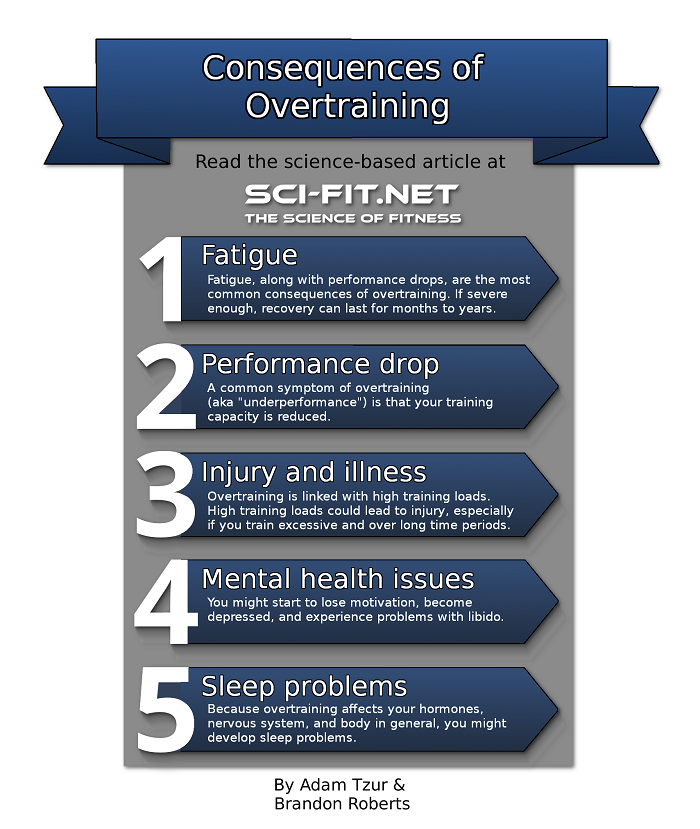Everybody knows and understands the benefits that occur from increasing your physical activity levels and exercise. So, more is always better right? Wrong. Like with most things, there is always a limit where too much can start to produce negative effects. Exercise and training is no different.
Overtraining Syndrome is when an individual begins to lose out on the benefits of training. This can be due to either under-fuelling of the athlete or not having enough recovery for the amount of training they are completing.
Keep an eye on the signs of overtraining discussed below so you can start to combat the detrimental effects of overtraining.
Sore Muscles/Extended Fatigue:
Struggling to get up out of bed after a workout is not all too uncommon after a hard training session, however multiple days of these DOMS (Delayed Onset of Muscle Soreness) may be due to overtraining of the muscles. This will lead to a decrease in training days, and therefore reduce the amount of adaptation and strength gains.
Increased Perceived Effort:
If you are starting to feel your usual workout becoming harder and harder without you increasing the intensity, then you may be experience overtraining.
Decreased Health:
Are you noticing you keep getting sick extremely easily? This could be due to over training at the gym. If you are overworking your body, then it will be focusing more on the recovery of your muscles, joints and tendons than preventing illnesses.
Changes in Sleep:
Have you been oversleeping recently, or maybe finding it too hard to fall asleep? This again could be due to you overtraining your body. You maybe to overstimulating your body from doing too much exercise, or not getting enough sleep to allow your body to recover properly.
Mood Changes:
Exercise has a large influence on your mental conditions during your life. Overtraining can lead to feelings of anxiousness and agitation in your daily life. You may also start to struggle to concentrate on other important tasks.
Increased Injuries:
The increase in injuries and risk of injuries is a major sign of overtraining. Placing your muscles, bones, ligaments and tendons under repeated stress without the proper recovery is a surefire way to get injured. Additionally, not allowing small, nagging injuries recover will lead to more serious issues down further down the road.
If you notice any of these signs during your training, take some time to have a proper recovery and review your current training. Come and see one of our fitness professionals today to build a program that will be tailored to you while ensuring you get the proper recovery you need to reach your goals.

